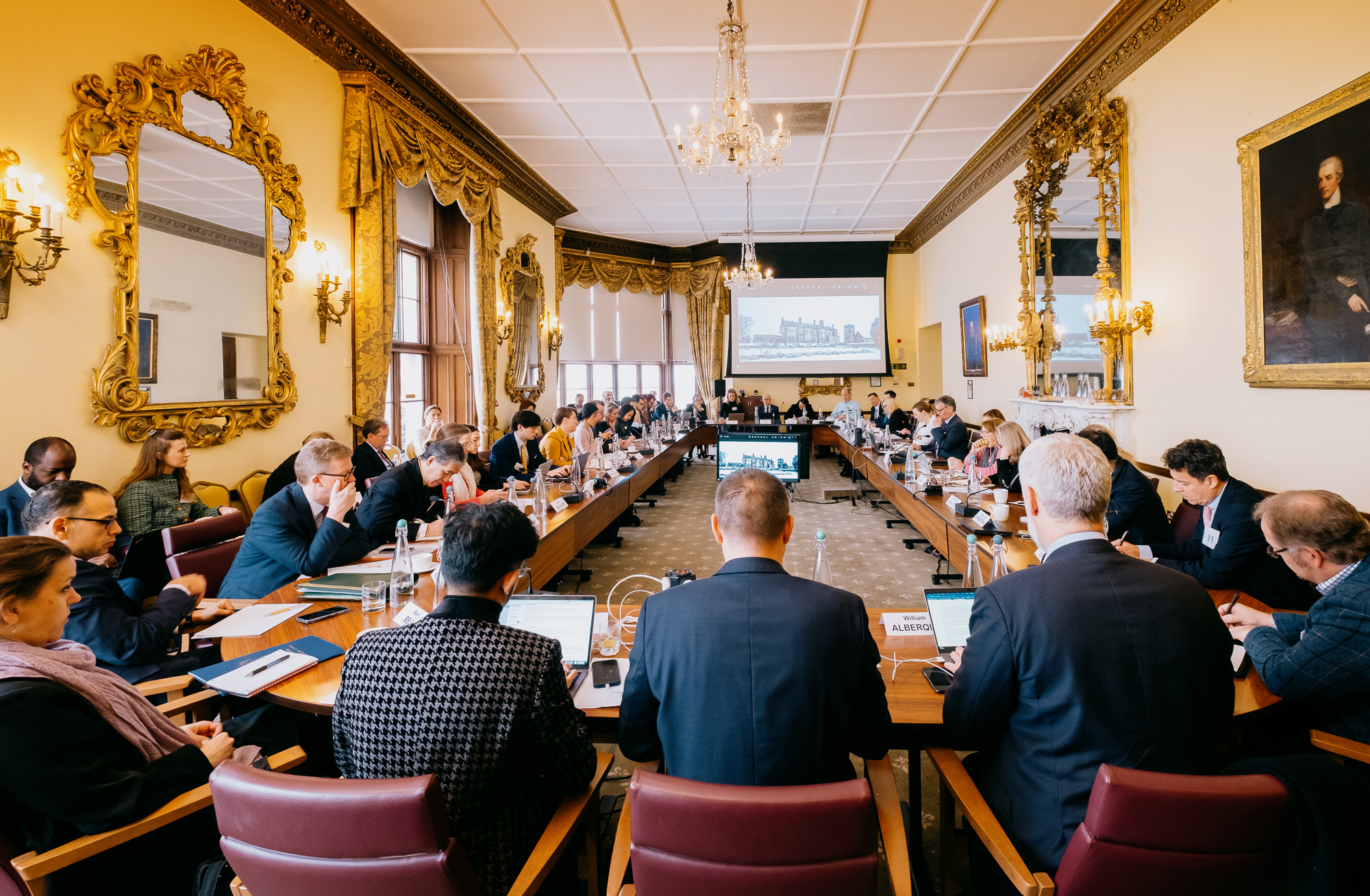- RevCon discussion about a Middle East Weapons of Mass Destruction Free Zone (MEWMDFZ) proved to be less contentious than in previous cycles. A new approach to establishing the MEWMDFZ seeks to focus on consensus and impartiality to allow for discussion of complex topics in an inclusive and objective process, which sees states in the region leading the initiative. The working committee plays a key role in facilitating these discussions and RevCon provides a unique platform to discuss regional dynamics through an international forum. The working group hopes that states with objections to the zone participate in an observer role or engage in discussions about viable options for creating a MEWMDFZ.
- However, Iran’s actions—most notably the use of armed drones in the Middle East, severe crackdowns on domestic protestors, and increased enrichment of uranium—pose an obstacle to the MEWMDFZ. Negotiations between the United States, Iran, and the original JCPOA parties for a return to the deal has stalled, raising questions about whether Iranian leaders truly want a return to the nuclear deal. Iran is also becoming more isolated within the NPT, sparking concerns that it might choose to withdraw. Iran’s withdrawal from NPT and development of a nuclear weapons program could cause a cascade of proliferation in the Middle East. While the IAEA continues to aggressively verify Iran’s nuclear program under the Comprehensive Safeguards agreements, the Agency is one resolution away from reporting Iran to the UN Security Council. States Parties to the NPT will need to think through the implications for the non-proliferation regime should Iran withdraw and proliferate. Although the current negotiations of the JCPOA seem to be overtaken by events, there may still be opportunities to engage with Iran to reduce enrichment levels and forestall weapons capability. Some participants suggested the IAEA could take a leading role in facilitating negotiations with Iran or that expanded regional involvement in the dialogues could be productive. Others, however, argued that the JCPOA would have eventually allowed Iran to develop nuclear weapons and that, instead of discussing how to revive the JCPOA, States Parties should consider longer term solutions.
- North Korea continues to pose a challenge to the NPT. It conducted more than 30 missile tests in 2022, and many scholars predict that a seventh nuclear weapons test is on the horizon. These tests and a more sophisticated North Korean nuclear posture, coupled with the war in Ukraine, have prompted some in Japanese and South Korean policy circles to question the reliability of U.S. extended deterrence guarantees. Japan is rapidly expanding and modernising its military, as well as shifting its force posture, to prepare for potential conflict with China and, for the first time, South Korean officials have engaged in open discussions about the possibility of developing an indigenous nuclear capability. The development of a nuclear capability by Japan and/or South Korea would be disastrous for the NPT regime. Moreover, P5 responses to North Korea’s provocative nuclear testing and ever-growing arsenal are disjointed. The United States, UK, and France would like to sanction the regime to ensure there is not a seventh nuclear test while Russia and China have taken a step back from negotiations on the denuclearisation on the Korean peninsula. Further complicating responses to North Korean activity is an ongoing shift in U.S. discourse surrounding the North Korean nuclear program. While past and current U.S. policy aims to denuclearise the peninsula, a growing number of experts argue that accepting North Korea as a nuclear power and pursuing arms control measures would better serve U.S. interests. A shift in U.S. policy along these lines could push U.S. allies to proliferate, should they interpret it as a sign of declining U.S. resolve or commitment.
- China raised another regional proliferation concern in both the PrepComs and RevCon regarding the Australia, U.S., and UK (AUKUS) security pact. The pact would see the United States and United Kingdom help Australia acquire nuclear-powered, conventionally-armed submarines to be deployed in the 2030s or 2040s. China argued that AUKUS is a proliferation concern and, although it did not become an overly large issue during RevCon, Chinese rhetoric about AUKUS could presage a change in Chinese views of nuclear sharing more broadly.
- Although AUKUS did not prove to be a central issue during RevCon, discussions about NSAs did. NWS have previously issued non-binding promises not to use or threaten to use nuclear weapons against NNWS. Russia’s threats to use nuclear weapons against Ukraine seemingly violate the NSAs that it provided as a party to the Budapest Memorandum. Moving forward, it may be important to recast NSAs as confidence-building or risk reduction measures. Equally important will be communicating the proper narrative about NSAs and convincing states of their value as the war in Ukraine continues.
